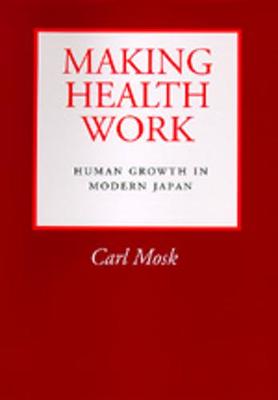Studies in Demography
1 primary work
Book 8
This text shows how population quality, specifically the population quality of schoolchildren in Japan, as measured with figures on height, weight, chest girth and body weight index, provides a key to understanding economic growth and social change in that greatly changed and expanded society. Japan exemplifies the capacity to industrialize rapidly and raise income levels despite severe natural resource constraints. The quality of a population determines its capability and work capacity, physically and mentally, and is determined by the net nutritional intake. This book's figures show that the net nutritional intake (gross intake less the nutrients burned in fueling physical work effort and combating disease) increased in Japan during the period 1900-1985. It finds, however, that gross food intake played a minor role; the main reasons the decline in net nutrition are in the rate of physical work extracted from children and greater medical and public health efficacy in fighting infection.
